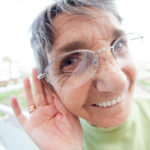 If people had an option to lower the risk of obesity, depression, hypertension, accidental death, and memory loss disorders without having to pop a pill, hit the gym or eat a leaf of kale, would they take it?
If people had an option to lower the risk of obesity, depression, hypertension, accidental death, and memory loss disorders without having to pop a pill, hit the gym or eat a leaf of kale, would they take it?
Unfortunately, for far too many, the answer is no. Between 50 million and 70 million people in the United States suffer from poor sleep habits that sap alertness today and could contribute to myriad chronic illnesses tomorrow.
“Insufficient sleep is a public health problem,” warns the federal Centers for Disease Control and Prevention, which cites the greater risk of car and workplace accidents as well as the long-term complications posed by failing to get a good night’s sleep.
Sufficient rest is one of the Healthy Brains Initiative’s Six Pillars of Brain Health, and can be a gateway to other healthy habits.
“A person getting enough sleep is more likely to have the energy to be active and engaged, and make wise diet and other lifestyle choices,” said Dr. Kate Zhong, Senior Director of Clinical Research and Development for the Cleveland Clinic Lou Ruvo Center for Brain Health.
“We find sleep deprivation particularly prevalent among caregivers for those suffering memory loss and other long-term maladies,” Dr. Zhong said, “and we encourage them to be pro-active when it comes to making sure they are well rested.”
From the beginning of human history until the living memory of some of us, night brought an impenetrable darkness that signaled the body that it was time to rest. Today’s technology gives us an unending stream of information and entertainment delivered through the screens of cellphones, computers, and TVs.
Research has indicated that high exposure to artificial light disrupts the circadian rhythm that acts as the body’s sleep clock and that heavy users of cellphones get less sleep overall and less restful deep sleep.
Countering those effects need not require a return to candlesticks and sleeping caps, but it does take understanding about today’s challenges and the way medical science suggests addressing them.
In the article “Lifestyle And Behavioral Treatments For Sleep Disorders,” the Cleveland Clinic provides an overview of the approaches to getting enough sleep. Among its recommendations:
- Relaxation Training: Progressive muscle relaxation and deep breathing techniques can, over time, help some people deal with sleep disorders.
- Cognitive Therapy: Understanding the thought processes and behaviors that often go hand in hand with insomnia can be key to addressing them.
- Sleep Hygiene: Habits and environment play key roles in determining the quality of a night’s sleep.
Sources:
http://www.cdc.gov/features/dssleep/index.html#References









